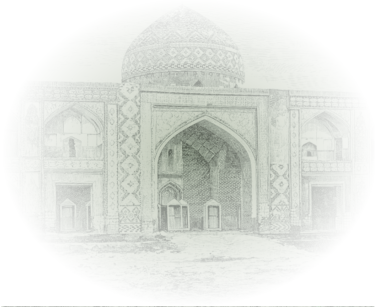Huseyn Mirali oglu Seyidzadeh was born in 1910, according to his elder brother Hasan and younger sister Zahra Khanum, he was born on October 13, 1912 in Iravan. In 1918, they were forced to leave their homes and go to Erzurum to escape the crimes committed by Armenians, and after 2 years they returned from Turkey to Tbilisi.
Huseyn Seyidzadeh came to Baku in 1925, entered the 1st grade school, and in 1927 got a job in a sewing factory. After leaving the factory, he joined the Baku workers’ theater and worked as an actor’s assistant. A year later, Huseyn became an actor in the “Young Worker” theater. In 1929, the theater sent H.Seyidzadeh to study in Leningrad and he completed a one-year directing course. After returning, Huseyn continued his work as an actor and assistant director at the Baku film studio.
In 1931, a new page was opened in H.Seyidzadeh’s life. The Baku film studio sent him to Moscow to the All-Union State Institute of Cinematography, where he learned the secrets of directing from prominent artists Lev Kuleshov and Sergey Eisenstein. In 1936, H.Seyidzadeh returned to Baku as an assistant director. In 1930, Huseyn, who “entered” the world of cinema by appearing in the film “Poor people”, started making independent films. In 1938, he directed the filming of “Bakilliar” and “Big Dawn”, and in 1939, he directed the filming of “Ayna”.
After his unsuccessful work in the last film, H.Seyidzadeh was sent to “Lenfilm” studio to improve his education, where famous directors such as V. Petrov and S. Yutkevich worked. After returning from Leningrad, he wrote the essay “Gift” in 1941, and in 1942 he was an assistant director in the film “A Family” with G. Aleksandrov. In 1944, he dubbed the film “Two Warriors”, participated as the second director in M. Romm’s “The Russian Question” (1948) and V. Pudovkin’s “Zhukovsky” (1950). In 1954, he shot the documentary film “To our native people”.
In 1956, Huseyn Seyidzadeh screened U.Hajibeyli’s operetta “If not that one, then this one”. This was the first color feature film in the history of Azerbaijani cinema. A musical film comedy based on the script of S. Rahman was shown at the Tashkent International Film Festival of Asian and African countries, was sold to more than 60 countries, including Iran, Iraq, Yugoslavia, Japan, Austria, USA, Switzerland and Hungary.
The heroic epic “Koroglu” shot in 1959 was his second film. The historical-revolutionary film “Invincible Battalion” produced in 1965 based on the script of Gilman Ilkin, 1969 year movie “Deli Kur” based on I. Shikhly’s novel of the same name has become one of the most memorable examples of Azerbaijani cinema.
In 1978, H.Seyidzadeh made his last film – “Mother-in-law”. The film was screened at the XII All-Union Film Festival held in Ashgabat and was awarded.
In 1971, H.Seyidzadeh was awarded the honorary title of “Honored Art Worker”. The outstanding director died in 1979.
Source:
Əsgər Zeynalov, İrəvan ziyalıları (Bakı: Oğuz eli, 1999)
